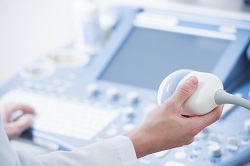Novel paradigm for biomedical ultrasound systems
Ultrasound technology uses high-frequency sound waves that are inaudible to humans to image different parts of the body. It is a safe procedure as it doesn’t use radiation and can thus be widely employed in obstetrics. Traditional ultrasound scanners integrate hardware, software and user interface in one unit. The EU-funded Quipu Cloud project is changing this model by separating the software from the hardware, delivering a new generation of biomedical ultrasound systems. “We aim to revolutionise the ultrasound diagnosis market by introducing a software framework that makes the ultrasound technology easier and seamless, in the same manner mobile applications are developed and used today,″ explains project coordinator Mr Vincenzo Gemignani. A novel approach to ultrasound diagnosis The idea behind Quipu Cloud was to develop software that brings worry-free compatibility with all ultrasound scanners, delivering reliable results independent of user proficiency. The main challenge faced was to integrate an ultrasound scanner to the Quipu Cloud software architecture. This was made possible with the next generation of scanners, allowing hospitals to make use of lower to mid-range scanners to get the diagnostic functionality of high end scanners using the Quipu Cloud ultrasound applications. The software is installed on a laptop or computer and the ultrasound scanner is connected directly to the computer or laptop. “The user simply launches our suite of applications, selects the diagnostic application required, starts the scan and the software will automatically provide the metrics of the analysis. It even stores the scans and results for later use,″ continues Mr Gemignani. Applications for cardiology ultrasound So far, the team has developed a suite of applications for implementing ultrasound technology in the field of the cardiovascular disease prevention. The first one, FMD Studio, measures the flow mediated dilation, which is widely used to assess endothelial dysfunction, an early indicator of cardiovascular risk. The technique uses ultrasound imaging to measure the increase of the brachial artery diameter in response to mechanical stress caused by a forearm cuff inflated to supra-systolic pressure. The second application, Carotid Studio, assesses the thickness and stiffness of the carotid artery, an index of atherosclerosis. The Quipu Cloud application essentially analyses sequences of ultrasound images of the carotid artery, providing information on vascular health, and thus the patient’s cardiovascular risk. The software is able to simultaneously calculate both structural and functional parameters. Overall, Quipu Cloud partners are hopeful that their standard interface combination of software and hardware can alter the medical ultrasound system paradigm. The generated framework isolates the software application from the environment it operates in, overcoming existing limitations encountered in ultrasound diagnosis. “After successfully showing the technical and commercial feasibility of our system, the next step is to scale up the prototype, and demonstrate its benefits in hospitals and clinics,″ envisages Mr Gemignani. With system optimisation on the pipeline to support more machines and gateway features, the Quipu Cloud ultrasound platform will soon expand its applications.
Keywords
Quipu Cloud, ultrasound, software application, cardiology



